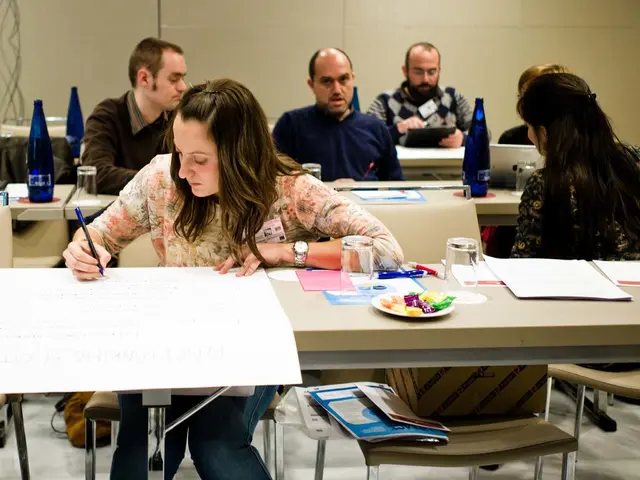Human Survival Tactics: Examining the Influence of Loss Aversion
In today's fast-paced world, making informed decisions is crucial for individual and societal survival. However, a psychological tendency known as loss aversion can sometimes cloud our judgement, leading to suboptimal choices. Loss aversion is the tendency to feel the pain of losses about two to three times more intensely than the pleasure of equivalent gains.
This bias, which evolved as a crucial survival mechanism for early humans, can cause individuals and societies to overly resist change, hold onto harmful investments, and exhibit excessive risk avoidance. For example, fear of potential losses might slow adaptation to new threats or opportunities, or cause individuals to cling to failing resources or policies instead of reallocating effort towards more productive survival tactics.
However, understanding the evolutionary roots and neural basis of loss aversion can help us consciously adjust our decision-making frameworks to overcome excessive loss sensitivity. By enabling more flexible, forward-looking behaviors, supporting adaptive life-history strategies, and encouraging better responses to uncertainty, we can make decisions that balance the risks and rewards of different survival strategies.
This improved decision-making can have far-reaching implications. For instance, it can help us respond more effectively to environmental challenges such as climate change and environmental degradation. It can also improve outcomes in critical areas such as public health, resource management, and existential risks, ultimately leading to better societal decisions.
Raising awareness about cognitive biases like loss aversion empowers individuals to recognize when their judgments may be influenced by it. Encouraging rational analysis and presenting options in terms of potential gains rather than losses can help shift perceptions and encourage more balanced decision-making.
In the realm of consumer behavior, loss aversion can lead shoppers to hesitate to switch brands or try new products due to the perceived risk of dissatisfaction. This can limit their choices and potentially prevent them from discovering better options. Similarly, in the realm of health, individuals may avoid necessary medical procedures or screenings due to the fear of potential negative outcomes, leading to worse health outcomes over time.
In the financial sector, investors may hold onto losing stocks too long due to loss aversion, missing opportunities for recovery. Politicians may also emphasize threats and losses associated with opposing policies rather than highlighting potential benefits, shaping public perception through fear.
In conclusion, while loss aversion may have conferred adaptive advantages in survival contexts for early humans, its persistence in modern society often leads to distorted perceptions and poor choices. By understanding and addressing loss aversion, individuals and societies can enhance their decision-making capabilities, leading to improved outcomes in critical areas affecting human survival.
- The evolutionary roots of loss aversion, as a crucial survival mechanism, can also guide us in enhancing our decision-making skills in various contemporary fields such as health-and-wellness, mental-health, environmental-science, and education-and-self-development.
- Raising awareness about loss aversion in the realms of consumer behavior, financial investments, and politics can drive individuals to make informed decisions, expanding their choices and promoting better outcomes.
- By recognizing the impact of loss aversion and consciously adjusting our decision-making strategies, we can foster more adaptive behaviors in today's complex world, ultimately leading to improved health, well-being, and societal progress.




